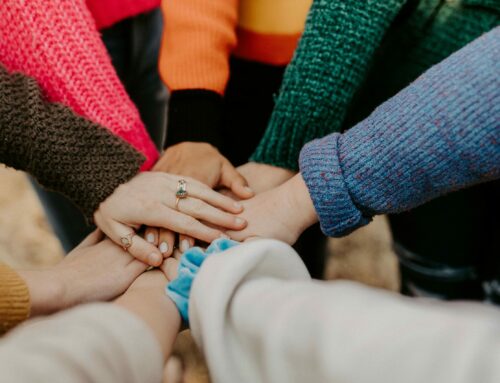As I write this, the UK is several weeks into lockdown to try to prevent the spread of Coronavirus, and the numbers of reported deaths are still on the increase.
The reports, and the numbers, are changing all the time, and there are many conflicting news items about the progress of the virus and the effectiveness of the government’s strategy to defeat it.
Our hospitals are not yet experiencing quite the level of overwhelm that we’ve seen in Italy and Spain, but they are struggling.
It’s natural to be worried, right?
The mental health risk of coronavirus
The first thing that I’m seeing happening to a lot of people is that their anxiety and stress levels are going through the roof. Job losses, home-working, home-schooling, concerns about your own health and that of your family and friends, will the shops still have enough food for us all?…the triggers are all around.
Added to that the need to maintain social distancing, with possible self-isolation or even quarantine (who even knew those phrases existed just a couple of weeks ago?) and I think we could be looking at a mental health crisis as well.
One of the things I’m really worried about is the potential for a rise in suicide rates as a result of coronavirus.
Typically, times of crisis are when people come together. During recessions, in war-time or in the aftermath of accidents or natural disasters, people draw comfort from their ‘tribe’, whatever form that happens to take.
But this is different.
Instead of coming together, this virus is forcing us to stay apart.
Mental health experts, including Joy Hibbins, the CEO and founder of charity Suicide Crisis, are warning of a link between social isolation and depression; particularly in people with underlying mental health conditions, the already lonely and isolated, or people suffering from anxiety about their finances.
Isolation and depression during coronavirus
Irresponsible reporting and ‘fake news’ is particularly dangerous at this time. Just last week, Donald Trump was criticised for apparently making light of the potential additional death toll from Covid-19 – those deaths by suicide of people brought to despair by the situation. We’ve already heard tragic stories of medical staff taking their own lives when diagnosed with Covid-19.
And what about the rest of us?
In the sports world, Tony Adams is on record on Sky News talking about his concerns for a rise in mental health cases among sportspeople
Many people with long-term mental health issues that put them particularly at risk rely, in normal circumstances, on support groups, which are now unable to meet in real life. If those people are unable to access online alternatives, there could be significant consequences for their mental health.
How can we help avoid a mental health meltdown due to Coronavirus?
If this all sounds rather alarming, that’s because it is. And there really isn’t any getting away from that.
But there are things we can all be doing to help ourselves, and others, during lockdown.
The NHS has posted some useful advice about maintaining your mental wellbeing whilst staying at home under lockdown.
There are ways you can help people you’re worried about, too. Most of us have access to ways in which we can keep in touch – so if there’s someone you’re worried about, do check in with them, even if it’s just on the phone. Often doing something for someone else, whether that’s general volunteering, or just keeping an eye out for a distant loved on, can help boost our our own mental wellbeing. I love the phrase ‘helping is healing’, and it definitely helps me to help others.
I’ve lived with high levels of stress and anxiety for years. During my major burnout in 2016, suicidal thoughts is just one example of the tough place I fell into. Now I want to help others to get through this as much as I can. So I’ve started a series of short daily Coronavirus (Covid-19) Survival Hacks videos with some easy to action hacks and best practice to help you get through lockdown. You can view and subscribe to my channel here.
The most important thing though, if you’re struggling with mental health issues, or if you’re concerned for the 1 in 4 people around you who will struggle; is not to suffer in silence. Please don’t be afraid to reach out for help if you need it.






